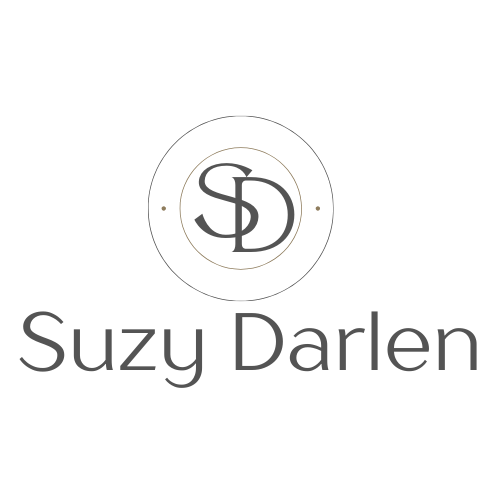Reading time: 12 minutes
This post may contain affiliate links. If you click these links and purchase something we may earn a commission. This helps us provide the information here free of charge to you. Continue Reading.

Jessica woke up one morning thinking of the best way to consolidate debt. She had her credit card bills, medical bills, and loan debts long overdue but she hasn’t been able to pay them. She hopes to pay it, and she will, but she needs more time. The only problem is, each time she wakes up more late payment interest keeps adding up.
Now she seeks the best way to consolidate her debt. If she could just get one huge loan to get all of her debts settled, and rolled into one, she would be relieved.
She would still be a debtor but at least there will be no more high-interest rates and overdue deadlines. She would also be relieved of the anxiety of having to face her many creditors.
Many of you are in Jessica’s shoes and looking for the best way to consolidate your debts.
In this article, we are going to take you through a study on debt consolidation, the best way to consolidate debt, and then show you where to find the best debt consolidation loan.
What is Debt Consolidation?
Debt Consolidation is the act of paying off one’s debt and liabilities by taking up a new single loan. In debt consolidation, multiple debts are combined into a new single larger loan with better payoff terms or lower interest rates.
In debt consolidation, the amount received from the new loan is used to settle off the older debts. The goal is to consolidate all other debts into one single large debt. The new single debts would offer a much favorable rate, payment, tenure, etc.
How we decide the Best Debt Consolidation Loans
The best way to consolidate debt is different for each person because of their financial conditions.
In the later part of this article, we are going to take a comprehensive assessment of debt consolidation, and the best debt consolidation loans. Before then, we will first discuss all you need to know about debt consolidation.

Understanding How Debt Consolidation Works
If you are burdened with multiple debts, and it seems like you wouldn’t be able to pay them anytime soon, you can apply for a debt consolidation loan. This will provide the necessary loan for you to pay them off.
By doing so, it had consolidated your many debts into one single debt. Meaning that you no longer have to worry about your multiple debts but you still have to pay it but to only one owner.
You can apply for debt consolidation through a credit card company, credit union, or your bank. As long as you have a good payment record you should be able to get your consolidation loan approved but if not, you can try private mortgage companies.
These companies would offer you much favorable debt terms compare to the one you are in but each company has its unique terms. That means that not all organizations are the same, some are better than others.
This is why, in the latter part of this article, we are going to teach you the best way to consolidate debt. So, keep reading.
Debt Settlement vs. Debt Consolidation
It is important to know that debt consolidation is not the same as debt settlement. We will be clarifying the differences below.
Debt consolidation simply transfers a debtor’s loan to a different lender; it doesn’t erase the original debt. Debt settlement reduces a debtor’s loan rather than the number of lenders.
Debt Settlement and Debt Consolidation are different forms of debt relief. They can both be used to consolidate debt but they each have different properties and functions.
Debt consolidation, as you already know from this article, reduces the number of creditors. Debt Settlement, on the other hand, reduces the amount of debt you owe.
Each option has its purpose and uses, depending on the financial situation you are in. There are times where debt consolidation might be better and vice versa.
Debt Settlement vs. Debt Consolidation, Which is better?
They are both two great options, and it depends on your financial situation. Here, we will explore the different financial situations and recommend which is best to use.
When to use Debt Consolidation
Debt Consolidation is advisable:
- When you simply want to pay the debt.
- When you can get a lower interest rate on the consolidated debt.
- When you have a plan to pay off your debt: Debt consolidation gets your debt under control and allows you more favorable pay off terms
When to use Debt Settlement
Debt settlement is sophisticated and can be a little risky. But it’s advisable when:
- When you are out of options: When you have poor credit, and can’t qualify for a debt consolation loan, you might try debt settlement.
- When you don’t want to declare bankruptcy: If you cannot be able to declare bankruptcy.
- When you are ready to take a hit on your credit report: Your debt has become so unbearable that you are willing to risk the credibility of your credit report due to delinquency.
Types of Debt Consolidation
Debt consolidation loans are of two types namely Secured Loans and Unsecured Loans.
Secured loans are loans borrowed with collateral. This collateral can be in the form of a car, house, etc.
Unsecured Loans are loans borrowed without collateral. They can be very difficult to obtain and tend to have a higher interests rate. Either way, their interest rates are significantly lower than those charged by credit cards.
Ways to Consolidate Debt
Having now established what debt consolidation is, we can now gradually begin to move into the various ways you can consolidate it.
In the next part of this article, you are going to see the ways to consolidate debts and the best debt consolidation loan. Below are the ways to consolidate debts.
Debt consolidation loans: Debt consolidation loan plans are mainly offered by banks and peer-to-peer lenders. Their target customers are those who are burdened by the number of their debts and the high-interest rates.
Credit Cards: Credit Card debt consolidation is a type of debt consolidation plan that involves consolidating all your credit card payments into a new one (credit card). This new card is meant to charge little or no interest for a set time.
Home Equity Lines of Credit (HELOCs) or Home Equity Loans: The home equity line of credit is another way to consolidate debt. However, it can only be approved if you have equity in your home. But if you fail to repay the loan, your house can be taken by the lender.
401(k) loans: This loan is taken out from your personal 401(k) account. You have up to 5 years to repay it.
Student Loan Programs: The Federal government through the Federal Direct Loan Program, offer direct loan consolidation for people with student loans. Several other consolidation options are also made available. The program calculates the weighted average of the previous loans to determine the new interest. Personal loans are not applicable to this program.
Check out our other post on Top 5 Debt Consolidation Companies HERE
Advantages of Debt Consolidations loans
Debt consolidation can be very good if it fulfills its purpose. Below are the ways it can be of importance to a debtor.
- Interest Saving: A debt consolidation can help you save money by offering lower interest compared to your current debt interest. The interest saved might seem little at first but when it accumulates over a long period you will see the difference. For example. Let’s say you have 3 credits cards and owe $15,000 in total, at a 22.99% yearly rate.
You are to pay $768.69 per month for 1 year to clear the balance to zero.
In the long run, this will total $3,448.5 paid in interest alone over time.
If those credit cards are consolidated into a lesser interest loan at an 11% yearly rate.
You will only need to pay $693.75 per month for 1 year to clear the loan.
This works out to paying $1,650 in interest. The means you get to save $74.94 a month and $1798.5 over the lifespan of the loan.
- Lower Monthly Payment: A debt consolidation loan lowers your monthly payment, and spread it over several years. This makes it easier to achieve on-time payments and can help your credit score
- Improved Credit Score: A debt consolidation when taken would serve as a new loan. Since the consolidated account is open but unused, your credit score will increase through the lower credit.
- It Protects Your Mental Health: Debt consolidation saves you the anxiety from receiving calls, texts, and letters from several creditor agencies, and lender
Disadvantages of Debt Consolidation Loans
A debt consolidation loan is meant to act as a lifesaver. It boosts your credit score and saves you from excessive loan interest rates. However, it is meant to work just fine as long as you use them as intended. Don’t add more to your debt, and pay off your debt consolidation loan on time.
Regardless, you may consider these disadvantages of debt consolidation.
- You may end up paying more Interest: There’s no guarantee of a lower debt consolidation loan interest. Some of these consolidation firms are better than others. That is why you need to know the best way to consolidate debt and the best debt consolidation loan.
- You will be tempted to add to your debt: Consolidating your credit card means that it is free again, and you might end up adding up debt again.
- Loss of Special Provisions on school debt: For example, interest rate discounts.
How to Know if you are qualified for a Debt Consolidation Loan?
There are a few things to check to know if you are qualified for a debt consolidation loan, they are:
- Credit Scores: Companies have a minimum credit score requirement for those seeking credit score loans. Higher credit score means lower interest rate. You could qualify for a lender’s lowest consolidation loan interest if you have an excellent credit score. But if your credit score is fair, you would be quoted a higher interest rate because you will be considered a big risk to lenders.
- Your Income: Debt consolidation companies would consider your debt-to-income ratio and may require a minimum annual income. The debt-to-income ratio refers to the percentage of your income that goes into paying debts.
Most companies want to know how much you spend paying debts monthly, and if it is too high (depending on their policy), they will decline you. Some companies allow a debt-to-income ratio as high as 50%. These companies are usually one of the best debt consolidation loan companies.
- Your Credit History: Most debt consolidation companies look into your credit history to ensure it’s free of bankruptcies, repossessions, liens, foreclosures, or tax. Some of these companies would allow a joint application or co-sign in other to minimize the risk of lending. But if you use a co-signer and you end up defaulting, you may damage your co-signer’s creditworthiness or relationship.
Best Debt Consolidation Companies
Having now established what it means to consolidate, and the best way to consolidate debt, we will now look into the best debt consolidation companies. These companies offer the best debt consolidation loan.
Upstart
- Annual Percentage Rate (APR): 6.95% to 35 %
- Loan Purpose: Debt consolidation, Home improvement, Medical, Moving, or Credit card refinancing
- Loan Amounts: $1,000 to $50,000
- Terms: 36 to 60 months
- Credit needed: 600 minimum (Vantage or FICO)
- Original fee 0% to 8% of the target amount
- Early payoff penalty: None
- Late fee: The greater of 5% of monthly past due amount 0r $15
- Requirement: SSN, Will accept applicants who have insufficient credit history and don’t have a credit score
- Funding: 1 business day
Upgrade
- Annual Percentage Rate (APR): 5.94% to 35.97%
- Loan Purpose: Debt consolidation/refinancing, major purchase, and home improvement
- Loan amounts: $1,000 to $50,000
- Terms: 24 to 84 months
- Credit needed: Fair, good or excellent
- Original fee: 2.9% to 8%
- Credit Score: 580 minimum
- Early payoff penalty: None
- Funding: 4 days
- Terms: No joint application or co-signers
- Interest rate: Fixed
Payoff
- Annual Percentage Rate (APR): 5.99 to 24.99% (6.99% minimum for loans over $15,000)
- Loan Purpose: Debt consolidation/Refinancing
- Loan Amounts: $5,000 to $40,000
- Terms: 24 to 60 months
- Credit Score: 640 FICO Score
- Credit needed: Fair, average or good
- Original fee: 0% to 5% (based on credit score and application)
- Early payoff penalty: None
- Late fee: 5% of the monthly payment amount or $15 whichever is greater (with a 15-day grace period)
- Requirement: Debt-to-income ratio of 50% maximum, zero delinquencies on your credit report in the past 12 months, satisfactory tradelines, age of credit history
- Funding: 2-5 business days
- Restrictions: Massachusetts, Mississippi, Nevada, and Nebraska
- Terms: No joint application or co-signers
Personal Loans (They connect borrowers with lenders)
- Note: Personal Loans is an affiliated company. They are not the loan lenders but they link you up with one. So, some of the details imputed here are estimations
- Annual Percentage Rate (APR): 5.99% to 35.89%
- Loan Purpose: Debt relief, student loan, debt consolidation, debt settlement medical loan, and tax relief
- Loan Amounts: $1,000 to $35,000
- Terms: 61 days to 96 months
- Credit needed: Fair, average or good
- Early payoff penalty: None
- Requirement: Your actual rate will depend upon your credit score, loan amount, loan term, and credit usage, and history
- Funding: 1 to 7 days
Personal Capital (Money management and Investment)
- Management fee: 0.49% to 0.89%
- Minimum Investment: $100,000
- Banking Service: Present
- Human Advisors: Present
- Accounts: Individual, Roth IRA, Rollover IRA, traditional IRA
Opp Loans
- Annual Percentage Rate (APR): 59% to 160%
- Loan Purpose: Debt relief, student loan, debt consolidation, debt settlement, medical loan, and tax relief
- Loan Amounts: $500 to $4000
- Duration: 18 months
- Credit Score requirement: None
- Original fee: None
- Late fee: None
- Requirement: 18+ years old, 90 days of bank transaction history, and SSN.
- Funding: 1 business day
Cura Debt

- Loan Purpose: Debt relief, student loan, debt consolidation, debt settlement medical loan, and tax relief
- Terms: 24 to 48 months
- Credit Score requirement: None
- Minimum Debt Amount: $5000
- Cost/Fees and Pricing: 20% of total debt
- Funding: 1 to 3 days
Lending Trees

- Annual Percentage Rate (APR): 1.89%
- Loan Purpose: Debt consolidation, Medical, Home Improvement, Wedding and Expenses, Vacation, and more
- Credit score requirement: 640 minimum
- Loan Amounts: $1,000 to $50,000
- Credit Score requirement: Poor, fair, good, very good, excellent 580 minimum
- Original fee: 1.75%
- Early payoff penalty: None
- Funding: 2 to 3 days








